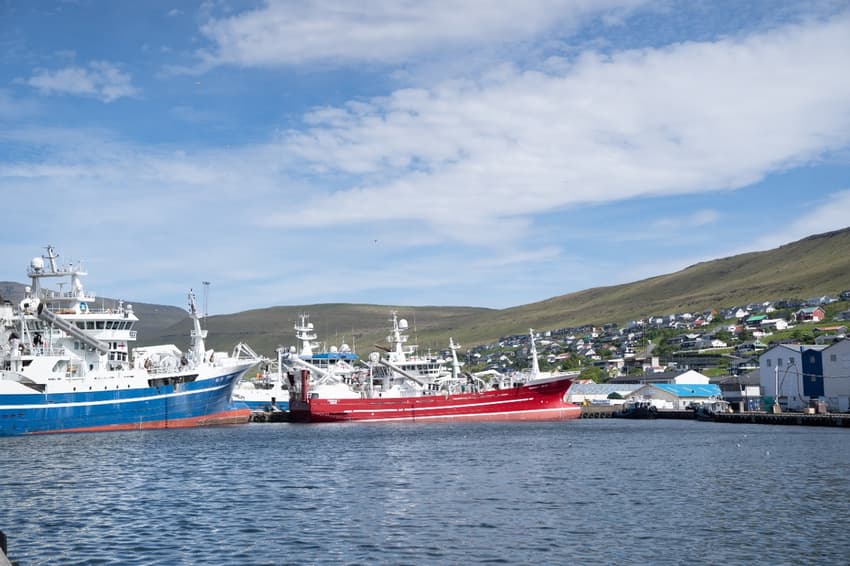Faroe Islands restrict Russian access to its ports

Denmark's autonomous Faroe Islands said on Thursday that Russian access to its North Atlantic ports would be restricted to vessels dedicated exclusively to fishing, in response to Russia's invasion of Ukraine.
"Only fishing vessels exclusively conducting fisheries under the bilateral agreement between the Faroe Islands and Russia will be allowed to enter
Faroese ports," the government said.
"The activities of Russian fishing vessels in port will be restricted to crew change, bunkering, provisioning, landing and transshipment."
Maintenance services will be prohibited and the purchase of goods restricted.
The Faroese government is trying to reduce Russian activities at its ports due to the risk of espionage and following criticism over the renewal of the bilateral fisheries accord at the end of November.
The agreement, renewed annually since 1977, lays out quotas on several species -- including cod, haddock, whiting and herring -- in the Barents Sea for Faroese fishermen and off the Faroe Islands for Russians.
According to the fisheries ministry, the fish caught under the accord accounts for five percent of gross domestic product.
Home to some 54,000 inhabitants and located between Scotland and Iceland, the Faroe Islands have been largely autonomous from Denmark since 1948.
They are highly dependent on fishing and have an autonomous commercial policy.
Russia has become a key commercial partner of the Faroes since they and neighbouring Iceland fell out with the European Union -- including Denmark -- between 2010 and 2014 over mackerel and herring quotas.
An EU embargo on Faroese fish harmed the economy of the territory, which then turned to other markets.
Comments
See Also
"Only fishing vessels exclusively conducting fisheries under the bilateral agreement between the Faroe Islands and Russia will be allowed to enter
Faroese ports," the government said.
"The activities of Russian fishing vessels in port will be restricted to crew change, bunkering, provisioning, landing and transshipment."
Maintenance services will be prohibited and the purchase of goods restricted.
The Faroese government is trying to reduce Russian activities at its ports due to the risk of espionage and following criticism over the renewal of the bilateral fisheries accord at the end of November.
The agreement, renewed annually since 1977, lays out quotas on several species -- including cod, haddock, whiting and herring -- in the Barents Sea for Faroese fishermen and off the Faroe Islands for Russians.
According to the fisheries ministry, the fish caught under the accord accounts for five percent of gross domestic product.
Home to some 54,000 inhabitants and located between Scotland and Iceland, the Faroe Islands have been largely autonomous from Denmark since 1948.
They are highly dependent on fishing and have an autonomous commercial policy.
Russia has become a key commercial partner of the Faroes since they and neighbouring Iceland fell out with the European Union -- including Denmark -- between 2010 and 2014 over mackerel and herring quotas.
An EU embargo on Faroese fish harmed the economy of the territory, which then turned to other markets.
Join the conversation in our comments section below. Share your own views and experience and if you have a question or suggestion for our journalists then email us at [email protected].
Please keep comments civil, constructive and on topic – and make sure to read our terms of use before getting involved.
Please log in here to leave a comment.